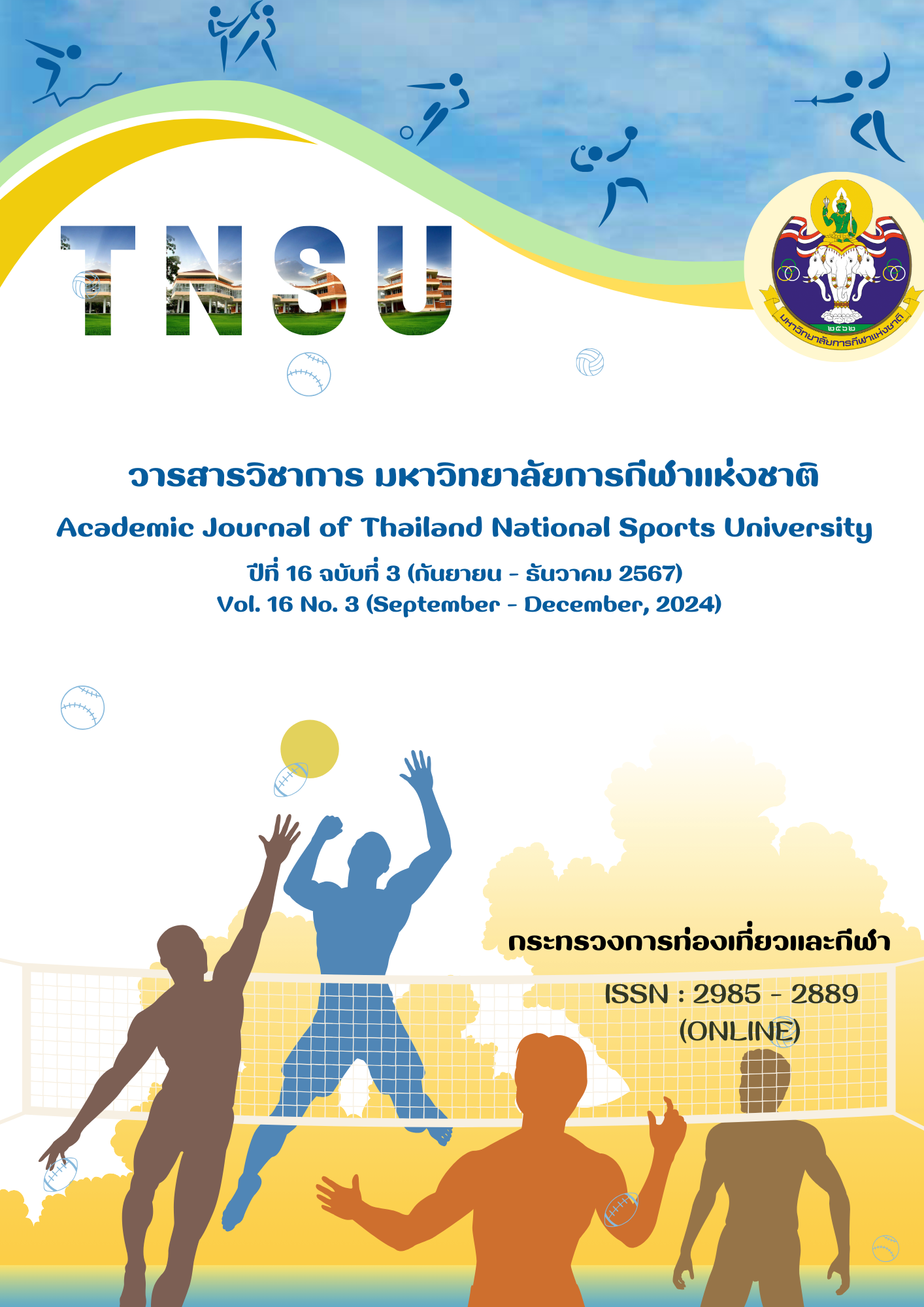EFFECTS OF HEALTH EDUCATION LEARNING MANAGEMENT USING REFLECTIVE THINKING ON LEARNING ACHIEVEMENT AND CONCEPT OF NON – COGNITIVE SKILLS OF SENCONDARY SCHOOL STUDENTS
Main Article Content
Abstract
Purposes: To compare mean scores of learning achievement and non-cognitive skills and after implementation of an experimental group and a control group, and to compare mean scores of learning achievement and non-cognitive skills after implementation between the experimental group and the control group. The subjects were 50 eight grade students, Multi-stage Sampling into two groups: 25 of the experimental group was assigned to study under health education learning activities using reflective thinking and 25 of the control group was assigned to study using the conventional teaching method. The research instruments were comprised of 8 health education lesson plans using reflective with an IOC of 0.78 and the data collection instruments included learning achievement in the area of knowledge, attitude, practice and non-cognitive skills with an IOC of 0.80, 0.85, 0.91 and 0.95, reliabilities of 0.73, 0.80, 0.80 and 0.79. The duration of the experiment was 8 weeks, 1 period per week, 50 minutes per period. Data were analyzed using mean, standard deviation and t-test (Paired Sample t-test, Independent Sample t-test). Results: The research finding was as follows: The mean scores of the learning achievement in the area of knowledge, attitude, practice and non-cognitive skills of the experimental group students after learning were significantly higher than that before learning at .05 level, and the mean scores of the learning achievement and non-cognitive skills of the experimental group students after learning were significantly higher than that of the control group students at .05 level. Conclusion: health education learning activities using reflective thinking effect on learning achievement and non-cognitive skills of eight grade students higher than health education learning activities with conventional teaching method.
Article Details

This work is licensed under a Creative Commons Attribution-NonCommercial-NoDerivatives 4.0 International License.
The published article is a copyright of the Academic Journal of Thailand National Sports University. The passage appeared in each article in this academic journal is a perspective of each author which is not related to the journal. Each author is required to be responsible for all components of his/her own article. If there are any mistakes, each author must be responsible for those mistakes on his/her own.
References
Chompunut Boonakart (2016). The effects of CIRC learning management combined with reflection techniques on English reading comprehension and attitude towards mathayomsuksa 3 students (Master’s thesis), Rambhai Barni Rajabhat University.
Gibbs, G. (1988). Learning by doing: A guide to teaching and learning methods. Oxford: Further Education Unit.
Jakkrit Siririn. (2022). Non - cognitive skills, new concepts in educational administration (first part). Retrieved from https://sobkroo.com/articledetail.asp?id=1071
Jintana Sarayutpitak. (2022). Health education learning management in the 21st century. Bangkok: Chulalongkorn University Printing House.
Kamonwan Bunditsathisan. (2018). Reflection of coeducational students (Master's thesis), Suranaree University of Technology.
Kolb, D. A. (2015). Experiential learning: Experience as the source of learning and development (2nd ed.). New Jersey: Pearson Education.
Ministry of Education, (2008). The basic education core curriculum B.E. 2551 (A.D. 2008). Retrieved form https://shorturl.asia/anSM7
Parichat Thongnueaung, & Jintana Sarayutpitak. (2015). The effects of health education learning management based on psychological development concept on health attitudes and learning achievement of prathomsuksa 5 students. Journal of Education, 43(1), 48 - 62.
Phennee Boon-asa, Prayoon Boonchai, & Bhumbhong Jomhongbhibhat. (2017). The development of a health education teaching model based on problem-based learning concepts incorporating metacognitive strategies for Mathayomsuksa 3 students. Journal of Graduate Studies, Valaya Alongkorn Rajabhat University under the royal patronage, 11(2), May – August.
Prasit Leerapan. (2014). Community health education: Concepts, strategies and processes. operating. Retrieved from http://nuph.health.nu.ac.th/phnu/ckeditor/upload/files/1378970373_123.pdf
Rattikorn Mueannadon, Yupaporn Tirapaiwong, Jeamjai Srichairattanakull, & Santi Yutthayong. (2019). Learning development through reflection. Retrieved from https://he01.tci-thaijo.org/index.php/bcnbangkok/article/view/216124/150183
Orakcı. (2021). Exploring the relationships between cognitive flexibility, learner autonomy, and reflective thinking. Retrieved from https://shorturl.asia/mYxUR
Wantana Nantakhian, Kulapatsorn Tangsiriwattanakul, & Sukalaya Sucher. (2017). Life skills of early childhood in the era of Thailand 4.0. Valaya Alongkorn Review Journal, 8(1).


